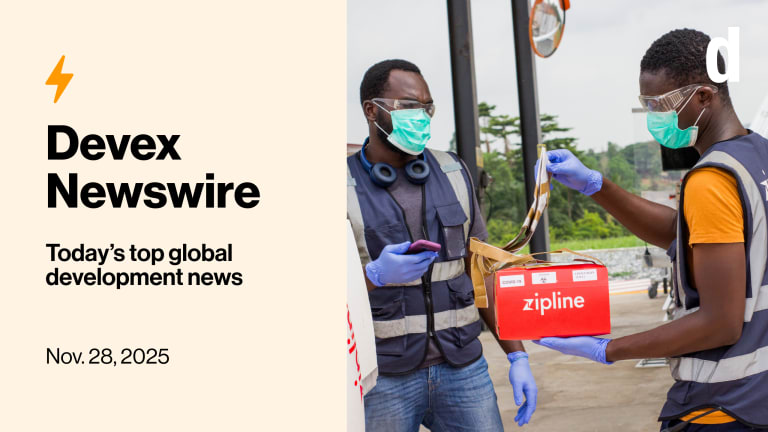
Something good is happening. People around the world are openly discussing, some for the very first time, what racism looks like within their communities, workplaces, and day-to-day lives. The deaths of George Floyd, Breonna Taylor, Rayshard Brooks, and so many others at the hands of police officers in the United States sparked a new wave of Black Lives Matters, or BLM, protests across the globe, with calls for change going beyond law enforcement.
Months later, we continue to see people at corporations, within academia, professional athletes, and more use their platforms to advocate for policies that recognize the structural inequalities experienced by people of color, with the aim of creating more equity among institutions and staff.
As change is slowly, yet steadily, beginning to take place within these arenas, the time has come for a reckoning within the humanitarian sector.
People who directly experience crises, and the communities surrounding them, are often best placed to drive lasting change. These people should have the power to make decisions about what will improve their lives.
—For too long, the humanitarian sector has perpetuated the idea that global north-based, Western-educated experts know better than those who are actually a part of the local communities. The intersection between race, gender, social class, and the passport you hold determines how you are valued in the sector and whether your ideas will be taken seriously or not.
I have seen on numerous occasions, close to my two decades of working in the sector, where international organizations send young, inexperienced, Western-educated staff to run programs and manage people with over two decades of experience working within their own country.
This is wrong and it needs to stop. These uncomfortable truths have been self-evident for decades, but now is not the time to whisper them in office corridors or friends-only circles. Now is the time to be bold, respectfully speak out, and offer solutions.
The BLM movement, alongside COVID-19, brings an opportunity to further examine the ways in which we can shift from a short-term project-based mentality to focusing on tackling the root causes of social injustices — not just within countries, but also between them.
The end goal of humanitarian aid should extend beyond saving lives to attacking head on the social injustices that lead to us responding in the first place. This means that the sector needs to continue to rethink the way it operates and actively be a champion of meaningful change, which is owned and driven by those closest to the crisis.
"Capacity sharing" — a two-way street whereby both international and local actors work together to develop lasting solutions.
—We know that the people who directly experience crises, and the communities surrounding them, are often best placed to drive lasting change. These people should have the power to make decisions about what will improve their lives and receive the resources to do so. International actors have a duty and responsibility to support, not substitute them.
Clients, partners, and front-line staff who are part of the communities affected by a crisis should be meaningfully involved in decisions at every level of crisis response — strategy development, project design, implementation, and monitoring and evaluation.
They are the raison d'être of humanitarian action and are, therefore, the most important stakeholders. Without their input, projects are more likely to miss the mark on meeting real needs and less likely to lead to better outcomes.
Opinion: We need structural change to enable self-empowerment — not empowerment by others
"Rather than a movement of empowering others, we need to start a radical initiative of depowering relationships through the structures of policies and laws."
In addition, the sector must move away from “capacity building” — a one way street whereby international actors seek to strengthen the capacity of national or community institutions — to "capacity sharing" — a two-way street whereby both international and local actors work together to develop lasting solutions.
There is a lot that international actors can learn from their local counterparts.
It is also time to move from seeing humanitarian aid and resettlement as an act of generosity from high-income countries to the mutually beneficial investment that it is, especially given the interconnectedness and interdependencies of the world.
For example, during a conflict prevention and peace-building program in the Democratic Republic of the Congo that began in 2018, the International Rescue Committee learned through local community feedback that women needed income-generating activities to enable them to participate in peace activities. People need to eat before they can talk about peace. To aid with this, we supported local business start-ups, which contributed to community empowerment through 12 income-generating activities that impacted 328 families and enabled participation in conflict resolution.
IRC and the humanitarian sector at large still have work to do, but this intentional approach to collaboration and power sharing is critical in ensuring that the ongoing movement on anti-racism, diversity, equity, and inclusion remains at the forefront of decision-making.
The time is now to rethink how we will be a better partner for those living in conflict and crisis settings to ensure that humanitarian aid goes beyond meeting immediate needs and extends to help resolve the root causes of social injustice.








